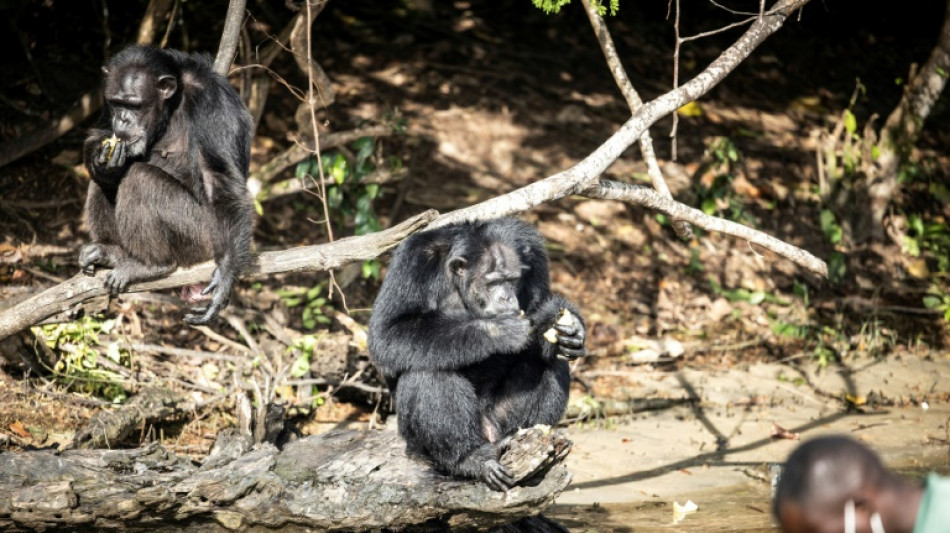
-
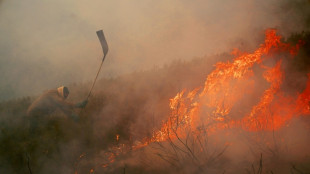 Wildfires pile pressure on Spanish PM
Wildfires pile pressure on Spanish PM
-
Stock markets mixed ahead of Nvidia earnings

-
 Football's loss as hurdles sensation Tinch eyes Tokyo worlds
Football's loss as hurdles sensation Tinch eyes Tokyo worlds
-
Pakistan blows up dam embankment as it braces for flood surge
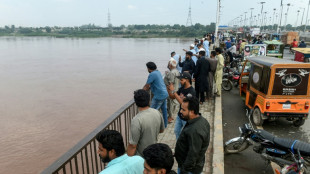
-
 Lego posts record sales, sees market share growing further: CEO
Lego posts record sales, sees market share growing further: CEO
-
France overlook Ekitike for World Cup qualifiers, Akliouche called up

-
 Rain no obstacle, Lyles insists ahead of Diamond League finals
Rain no obstacle, Lyles insists ahead of Diamond League finals
-
Almodovar urges Spain cut ties with Israel over Gaza

-
 Macron gives 'full support' to embattled PM as crisis looms in France
Macron gives 'full support' to embattled PM as crisis looms in France
-
Stock markets diverge awaiting Nvidia earnings

-
 German cabinet agrees steps to boost army recruitment
German cabinet agrees steps to boost army recruitment
-
Denmark summons US diplomat over Greenland 'interference'

-
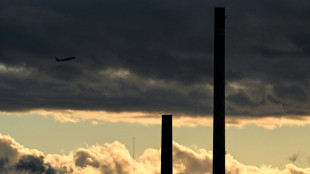 German factory outfitters warn of 'crisis' from US tariffs
German factory outfitters warn of 'crisis' from US tariffs
-
Israel ups pressure on Gaza City as Trump eyes post-war plan
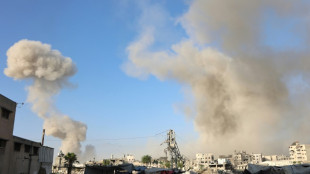
-
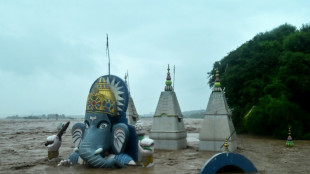 Floods, landslides kill at least 30 in India's Jammu region
Floods, landslides kill at least 30 in India's Jammu region
-
Former player comes out as bisexual in Australian Rules first

-
 Indian spin great Ashwin calls time on IPL career
Indian spin great Ashwin calls time on IPL career
-
India faces world football ban for second time in three years
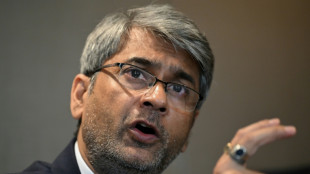
-
 Globetrotter Herzog to get special Venice award
Globetrotter Herzog to get special Venice award
-
'Old things work': Argentines giving new life to e-waste

-
 Showtime for Venice Film Festival, with monsters, aliens, Clooney and Roberts
Showtime for Venice Film Festival, with monsters, aliens, Clooney and Roberts
-
Thai woman jailed for 43 years for lese-majeste freed
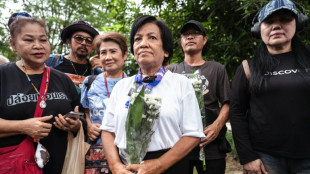
-
 What is swatting? Shooting hoaxes target campuses across US
What is swatting? Shooting hoaxes target campuses across US
-
Row over Bosnia's Jewish treasure raising funds for Gaza
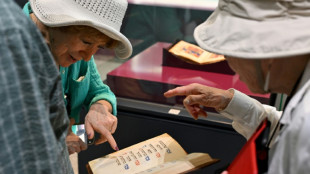
-
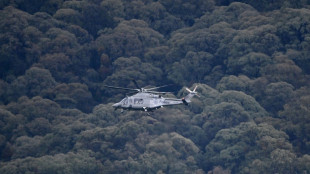 Police search Australian bush for gunman after two officers killed
Police search Australian bush for gunman after two officers killed
-
NZ rugby player who suffered multiple concussions dies aged 39
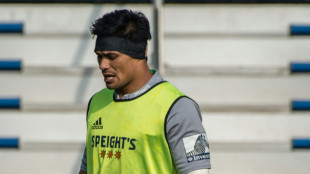
-
 Former Australian Rules player comes out as bisexual in first
Former Australian Rules player comes out as bisexual in first
-
French, German, Polish leaders to visit Moldova in show of force in face of Russia

-
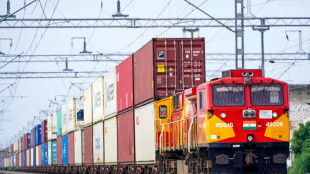 US tariffs on Indian goods double to 50% over Russian oil purchases
US tariffs on Indian goods double to 50% over Russian oil purchases
-
Feudal warlord statue beheaded in Japan
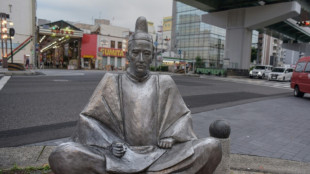
-
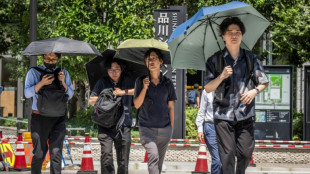 Tokyo logs record 10 days of 35C or more
Tokyo logs record 10 days of 35C or more
-
Sinner, Swiatek romp through at US Open as Gauff struggles

-
 Brazil to face South Korea, Japan in World Cup build-up
Brazil to face South Korea, Japan in World Cup build-up
-
Asian markets diverge with eyes on Nvidia earnings

-
 Osaka out to recapture sparkle at US Open
Osaka out to recapture sparkle at US Open
-
China's rulers push party role before WWII anniversary
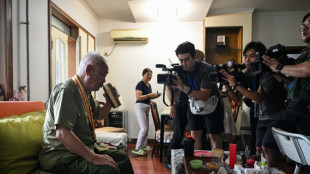
-
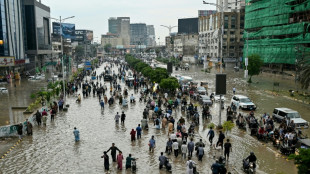 Pakistan's monsoon misery: nature's fury, man's mistake
Pakistan's monsoon misery: nature's fury, man's mistake
-
SpaceX answers critics with successful Starship test flight
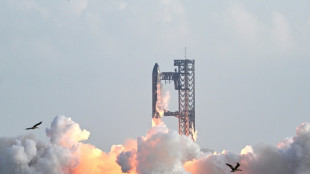
-
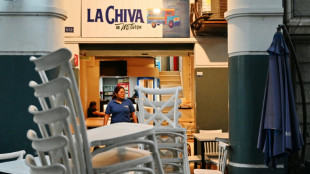 Nightlife falls silent as Ecuador's narco gangs take charge
Nightlife falls silent as Ecuador's narco gangs take charge
-
Unnamed skeletons? US museum at center of ethical debate
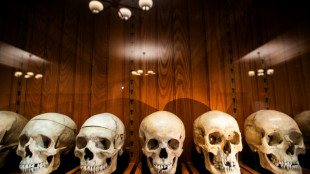
-
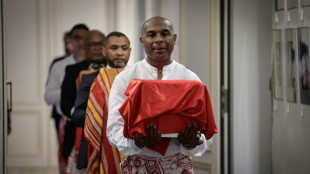 France returns skull of beheaded king to Madagascar
France returns skull of beheaded king to Madagascar
-
SpaceX's Starship megarocket launches on latest test flight
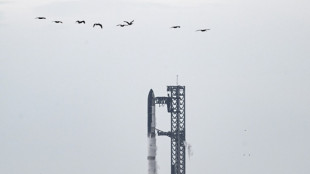
-
 Formerra Appointed Distributor for Italy's Epaflex TPU Lines in the UK & Ireland
Formerra Appointed Distributor for Italy's Epaflex TPU Lines in the UK & Ireland
-
US restaurant chain Cracker Barrel cracks, revives old logo

-
 Brazil's Bolsonaro placed under 24-hour watch ahead of coup trial verdict
Brazil's Bolsonaro placed under 24-hour watch ahead of coup trial verdict
-
Taylor-Travis love story: 5 things to know

-
 Sports world congratulates Swift and Kelce on engagement
Sports world congratulates Swift and Kelce on engagement
-
Wolves inflict more woe on West Ham, Leeds crash out League Cup

-
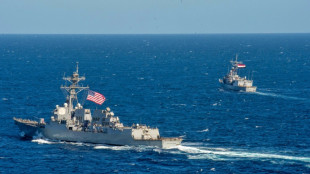 Venezuela deploys warships, drones as US destroyers draw near
Venezuela deploys warships, drones as US destroyers draw near
-
French political turmoil sends European stocks down, Wall Street edges up
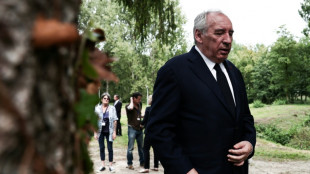

After life of trauma, Liberian lab chimps settle into retirement
Floating on a river boat near a Liberian island, vet Richard Ssuna watches intently as animal carers wade towards the shore hurling fruits and imitating chimpanzee calls as they go.
The beach is empty, but the sound of rustling and chimpish grunts begins to fill the green undergrowth. Slowly, an ape knucklewalks out onto the beach to grab some food.
He's a high-ranking member of his troop, explains Ssuna, as more chimpanzees follow. The younger ones gambol and hoot in delight as carers throw them bananas, palm nuts and cassava.
Sixty-five chimps are spread across six uninhabited river islands near the Atlantic Ocean, about 55 kilometres (34 miles) south of the West African country's capital Monrovia.
But their joy in feeding belies a dark past.
The chimps are the remainders of a group of about 400 ex-test subjects of a US-funded research project -- and have survived decades of invasive experiments. Some of the animals underwent several hundred biopsies.
"They were traumatised," says Ssuna, who's also a director of Humane Society International (HSI), a rights group that now cares for the primates.
Chimp testing in Liberia began 1974, when the New York Blood Center (NYBC) funded biomedical research related to hepatitis B and other diseases at a complex by the Farmington River.
During Liberia's devastating 1989-2003 civil war, the chimpanzees nearly starved to death as the country imploded around them.
Research staff in the impoverished country had to dig into their own pockets to provide basic sustenance.
The researchers retired many of the chimps to the river islands in the mid-2000s but their ordeal continued.
For reasons that remain unclear, NYBC cut funding in 2015 -- in a move that provoked global outrage -- abandoning the apes on the tiny river islands incapable of supporting them.
Activists picketed NYBC headquarters in New York and Hollywood stars such as Joaquin Phoenix and Ellen Page signed a petition urging the blood bank to reinstate funding.
Brian Hare, a US-based primatologist who launched the petition, wrote at the time: "Effectively they have left these poor chimpanzees to suffer from dehydration and starvation".
- 'Victim of torture' -
Liberia is one of the world's poorest countries, where 44 percent of the population lives on less than $1.90 per day, according to the World Bank.
Local staff at the research centre kept showing up to work to help the chimps when NYBC cut funding -- at a time when an Ebola epidemic was raging in Liberia. Rights groups and US financial giant Citigroup also provided relief funds during the turbulent period.
Under pressure, NYBC eventually struck an agreement to split the long-term care costs for the chimps with the Humane Society in 2017, pledging $6 million.
NYBC did not respond to questions from AFP about why it withdrew funding.
Years on, the former lab chimps now enjoy veterinary care and two daily meals. But many still bear the scars of their grim past.
At another island, during morning feeding, Ssuna points to a grizzled ape who's missing an arm. The vet says the animal is "essentially victim of torture."
The chimp, named Bullet, lost the limb as a infant when poachers killed his mother and ripped him from her arms. He then ended up at the research lab.
The carers are trained to form close attachments with the chimpanzees and to be gentle, explains Ssuna, who says certain stimuli can trigger negative memories in chimps, as in humans.
- Bright future -
None of the chimpanzees can be released into the wild, and are confined to the islands for life.
They never learned to fend for themselves and there are also fears they would spread disease if humans came into contact with them.
Keeping them fed is a serious operation.
Carers prepare about 200 kilogrammes (440 pounds) of food every morning, and 120 kilos (264 pounds) in the afternoon -- amounting to about 10 tonnes a month.
Care will continue until every ape on the islands dies, according to Ssuna.
He estimates that their lifelong care will last some 50 years. Many of the chimps are around 20 years old and have a lifespan of about 60.
There are also a small number of babies. HSI plans to vasectomise the males to prevent further births.
"The future is very bright, as much as we would like to leave them back in the wild," says Ssuna back on the mainland after the feeding, standing near the rusted animal cages of the old research complex.
"They’re in a better place."
F.Pavlenko--BTB
